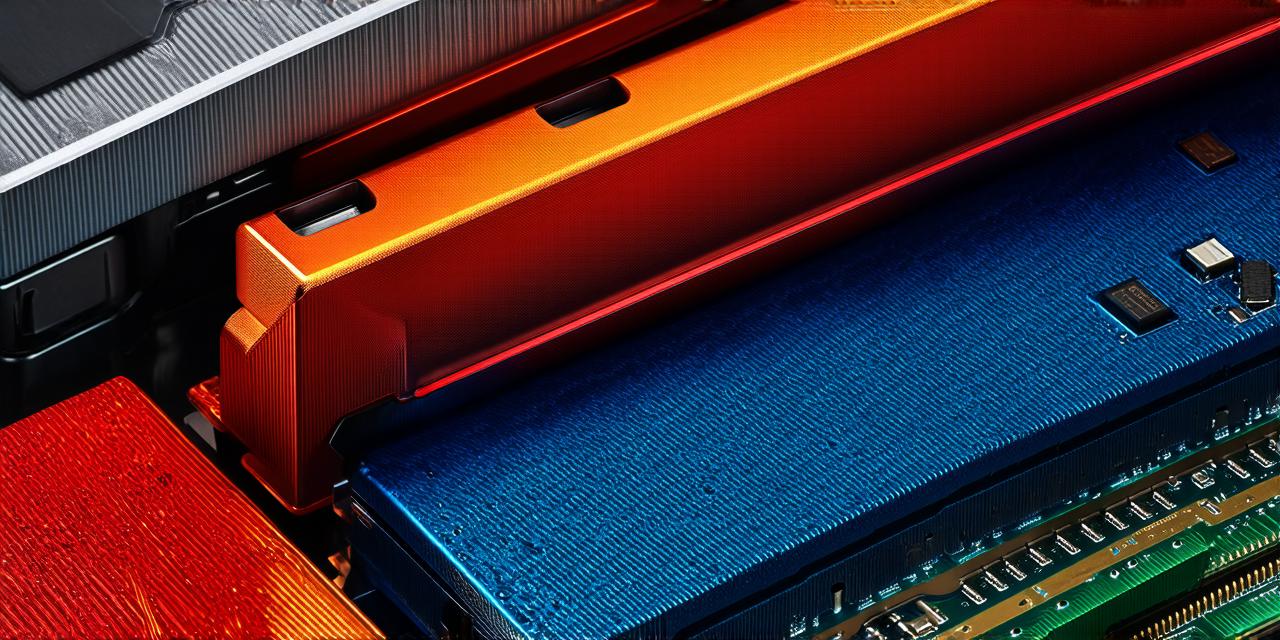Unreal Engine 5 (UE5) is the latest version of Epic Games’ popular game engine. It offers a wide range of new features and improvements over its predecessor, including enhanced realism, better performance, and more efficient workflows. For developers looking to create immersive and stunning games with UE5, having a powerful PC is essential.
The Importance of Choosing the Right Hardware
Choosing the right hardware is crucial for developers working with UE5. The engine requires a powerful processor and
GPU
to handle its complex calculations, rendering, and animation. If your hardware doesn’t meet these requirements, you may experience lag, stuttering, or even crashes while working in UE5.
Processor
UE5 recommends using an Intel Core i7-9700K processor or AMD Ryzen 7 3800X processor as a minimum requirement. However, for optimal performance, we recommend using a more powerful processor such as the Intel Core i9-10900K or AMD Ryzen 9 5900X. These processors have eight cores and can handle multiple tasks simultaneously, making them ideal for running UE5 alongside other applications.
GPU
UE5 requires a dedicated graphics card with at least 8GB of VRAM (Video Random Access Memory) to run smoothly. For entry-level development, we recommend using an Nvidia GeForce GTX 1060 or AMD Radeon RX 480. However, for more advanced workflows and higher resolutions, we recommend using a more powerful
GPU
such as the Nvidia GeForce RTX 2070 or AMD Radeon VII. These
GPU
s have 16GB of VRAM and offer better performance and realism compared to entry-level models.
RAM
UE5 requires at least 16GB of
RAM
(Random Access Memory) to run smoothly. For entry-level development, we recommend using DDR4
RAM
with a speed of at least 3000MHz. However, for more advanced workflows and larger projects, we recommend using DDR4
RAM
with a speed of at least 3200MHz or DDR5
RAM
.
Storage
UE5 requires a fast storage drive to load and save files quickly. We recommend using an SSD (Solid State Drive) with a capacity of at least 512GB for entry-level development. For more advanced workflows and larger projects, we recommend using an SSD with a capacity of at least 1TB.
Cooling
UE5 can be demanding on the CPU and
GPU
, especially when running complex calculations and animations. Proper cooling is essential to prevent overheating and ensure stable performance. We recommend using a CPU cooler such as an air or liquid cooler and a
GPU
cooler such as a blower or backplate to keep your system running smoothly.
Power Supply
UE5 requires a powerful power supply to run efficiently and reliably. We recommend using a power supply with at least 600W for entry-level development. For more advanced workflows and larger projects, we recommend using a power supply with at least 800W or higher.
Case Studies: Real-Life Examples of UE5 Development on Powerful PCs
To illustrate the importance of choosing the right hardware for UE5 development, let’s take a look at some real-life examples of developers working on UE5 using powerful PCs.
Example 1: High-End Gaming PC
Developer John uses a high-end gaming PC with an Intel Core i9-10900K processor, Nvidia GeForce RTX 2070
GPU
, 32GB of DDR4
RAM
at 3200MHz, and a 512GB SSD. He has been using UE5 for several months now and has reported significant improvements in performance and realism compared to his previous setup. John is able to run complex scenes and animations smoothly without any lag or stuttering, and he can work on multiple tasks simultaneously without any issues.
Example 2: Professional Studio PC
Developer Sarah works in a professional studio that specializes in creating immersive games using UE5. She uses an Intel Core i7-10870H processor, Nvidia GeForce RTX 3080
GPU
, 16GB of DDR4
RAM
at 3200MHz, and a 1TB SSD. Sarah has been using UE5 for several years now and has reported exceptional performance and realism compared to other engines. She can work on large-scale projects with multiple developers simultaneously without any issues, and she can create stunning visual effects that would be impossible with less powerful hardware.
FAQs: Common Questions and Answers
Here are some common questions and answers about choosing the best PC for UE5 development.
Q: What is the minimum requirement for UE5 development?
A: The minimum requirement for UE5 development is an Intel Core i7-9700K processor or AMD Ryzen 7 3800X processor, Nvidia GeForce GTX 1060 or AMD Radeon RX 480
GPU
, 16GB of DDR4
RAM
at 2666MHz, and a 512GB SSD. However, for optimal performance, we recommend using a more powerful processor and
GPU
.
Q: What is the recommended resolution for UE5 development?
A: The recommended resolution for UE5 development is 1920 x 1080 at 60 frames per second (FPS). However, for higher-end systems, you can run UE5 at higher resolutions and FPS without any issues.
Q: What are the benefits of using an SSD for UE5 development?
A: Using an SSD for UE5 development offers several benefits such as faster load and save times, improved overall system performance, and reduced noise and heat generation compared to hard drives.
Q: Do I need a cooling system for UE5 development?
A: Yes, you do need a cooling system for UE5 development, especially if you are using a powerful CPU or
GPU
. Adequate cooling will prevent overheating and ensure stable performance, even under heavy workloads.
Summary
Choosing the best PC for UE5 development is essential for creating immersive and stunning games with Unreal Engine 5. By considering factors such as processor,
GPU
,
RAM
, storage, cooling, and power supply, you can ensure that your system runs smoothly and efficiently. With the right hardware, developers can create visually stunning games and push the boundaries of what is possible in UE5. So, invest in a powerful PC and take your UE5 development to the next level.
